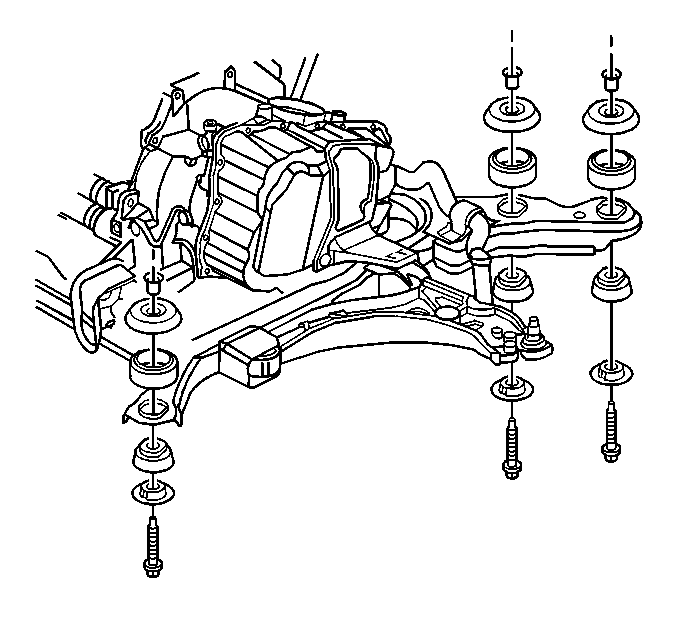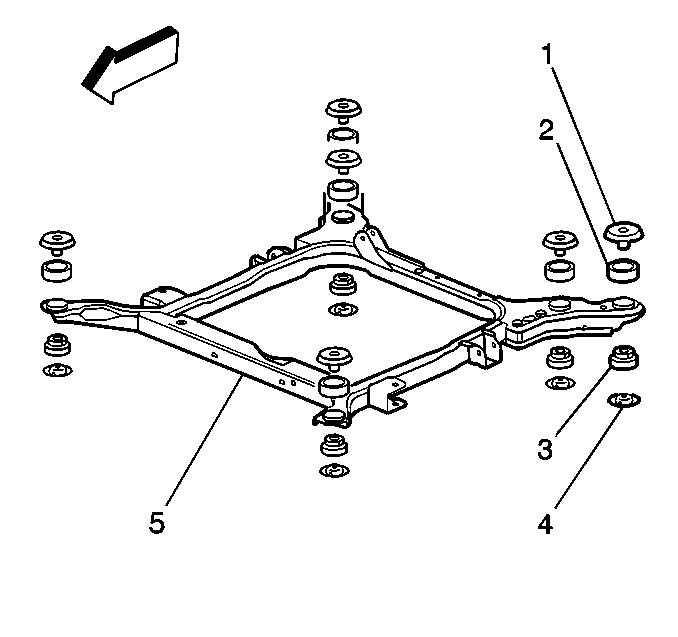
Refer to General Description for information on conditions resulting from improper installation or frame insulators. Removing any one frame insulator requires loosening the adjacent frame insulators in order to permit the frame to separate from the body.
Use caution when replacing the insulators in order to prevent the following conditions from occurring:
| • | Breaking the plastic fan shroud |
| • | Damaging the frame attachments (steering hoses, brake pipes) |
If the frame insulator bolt does not screw in smoothly, run a tap through the cage in the body in order to remove the foreign material. Ensure that the tap does not punch through the underbody. Position the insulator and the metal washer in order to prevent contact with the frame rail. Do not over tighten the insulator nut. Overtightening the nut may strip the cage nut.
Removal Procedure
Important: Perform the procedure exactly as specified, regardless of whether you will replace all of the insulators or only one of the insulators.
- Raise the vehicle using a frame contact hoist. Refer to Lifting and Jacking the Vehicle in General Information.
- Support the frame (5) near the insulator using jackstands.
- Remove the bolt and the retainer (4) from the insulator.
- Remove the lower insulator (3).
- Raise the body slightly.
- Remove the following components:

| • | The upper insulator (2) |
| • | The spacer (1) |
Installation Procedure
- Install the following components:
- Lower the body to the frame (5).
- Install the lower insulator (3).
- Install the retainer (4) and the bolt.

| • | The upper insulator (2) |
| • | The spacer (1) |
Notice: Use the correct fastener in the correct location. Replacement fasteners must be the correct part number for that application. Fasteners requiring replacement or fasteners requiring the use of thread locking compound or sealant are identified in the service procedure. Do not use paints, lubricants, or corrosion inhibitors on fasteners or fastener joint surfaces unless specified. These coatings affect fastener torque and joint clamping force and may damage the fastener. Use the correct tightening sequence and specifications when installing fasteners in order to avoid damage to parts and systems.
Tighten
Tighten the insulator bolts to 192 N·m (142 lb ft).
